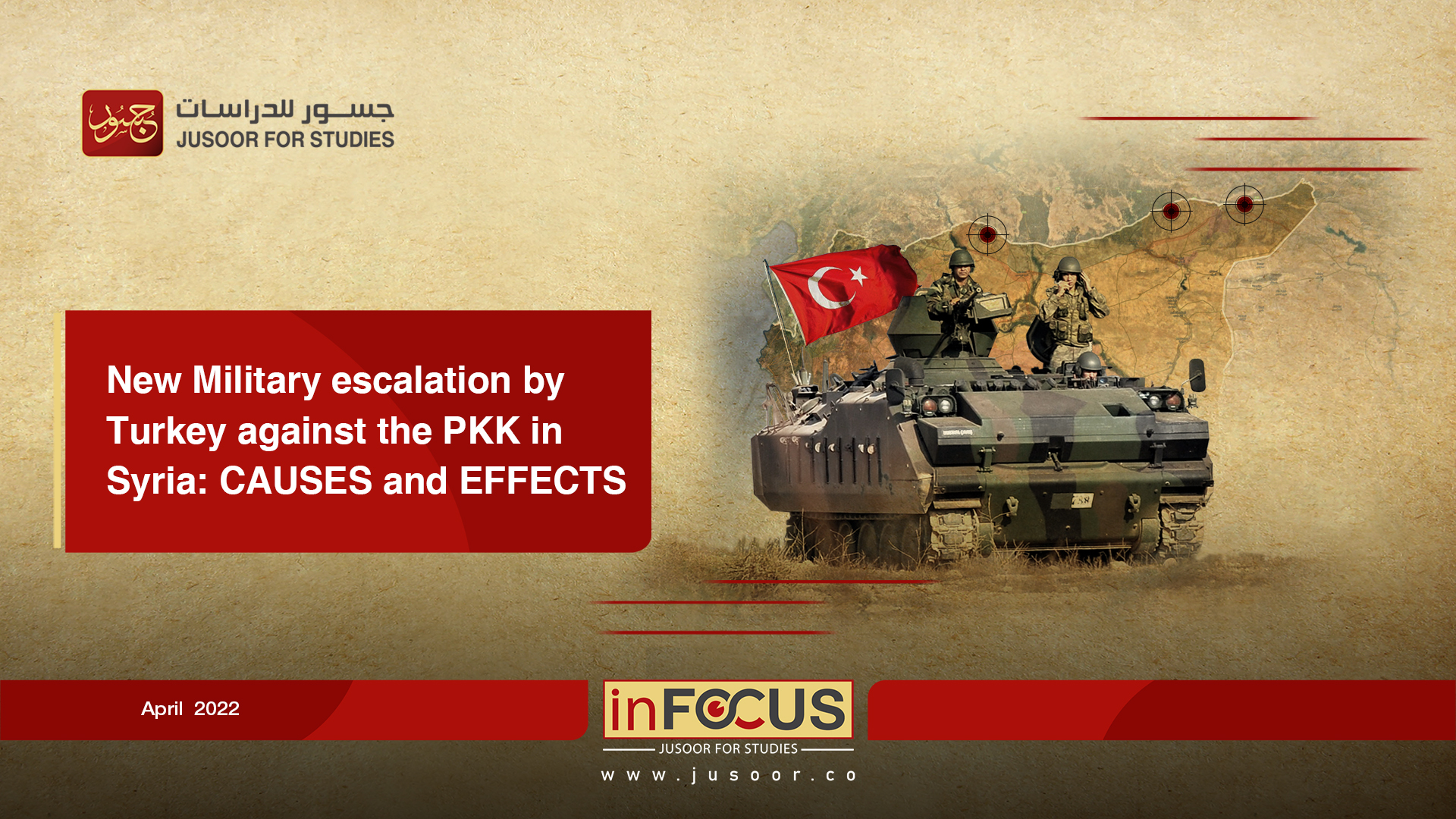New Military escalation by Turkey against the PKK in Syria: CAUSES and EFFECTS
New Military escalation by Turkey against the PKK in Syria: CAUSES and EFFECTS
Since the beginning of April 2022, northeastern Syria has witnessed a new military escalation by Turkey against targets affiliated with the Kurdistan Workers Party (PKK) and the Syrian Democratic Forces (SDF). The recent escalation has came more than two months after the Turkish forces carried out Operation Winter Eagle, during which the Turkish Air Forces carried out air strikes by fighter jets and drones, targeting more than 80 targets in the PKK-held areas in Syria and Iraq.
Aparently, there was a noticeable increase in the frequency of ground bombardment of targets belonging to the "SDF" and the PKK-affiliated People's Protection Units (YPG) in the vicinity of the "Peace Spring" area in the countryside of Tal Tamer and Ain Issa and the Abu Rasin "Zarkan" area.
Also, on April 1, Turkish forces targeted a car carrying PKK members and leaders in the village of Hasouda, south of the town of al-Qahtaniyah in Al-Hasakah countryside, which led to the killing of one of the PKK fighters and the injury of two leaders, one of whom is called "Farhad Mardi".
Once again, drones carried out an attack on the 3rd of the same month, against a vehicle belonging to the coordination center with the Russian forces in the SDF-affiliated Syriac Military Council (MFS), while the vehicle was on its way to meet with the Russian forces to inspect the Tal Tamer power transmission station located in the vicinity of the military base north of the city of Tal Tamr, after it was damaged as a result of mutual shelling in the area. The drone attack led to the injury of Orm Maruki, a member of the General Command of the MFS, and Vadim Ahmed, the translator and member of the same coordination center.
It is noted that since mid-August 2021, Turkey started a new phase in its dealing with the threat of the spread of the PKK in Syria, by reducing the rate of conducting joint observation patrols with Russia in the areas east of the Euphrates, in return for intensifying direct air strikes on targets belonging to the PKK and SDF".
Reducing the rate of joint patrols and expanding and intensifying aerial bombardment, however, does not mean that Turkey has abandoned its commitment to the “Sochi” Memorandum (2019), while any targeting is supposed to have been coordinated in advance with Russia, to avoid frictions (deconfliction efforts) and to report on the list of active targets. This does not mean that Russia gives in to this mechanism.
Russia's failure to take any position regarding Turkey's escalation in the east of the Euphrates may affect the understanding it held with the "SDF" in October 2019, which stipulated Russian forces deployment with the Syrian regime forces in the region in exchange for protecting it from Turkish military operations.
Therefore, Turkey's continued escalation could undermine Russia's role as a mediator or guarantor for SDF, which might reduce its commitment to military and security coordination with Russian forces within the former's areas of control; which may give rise to incidents of friction and deliberate provocation between the two parties or between the SDF and the regime forces.
In general, it is expected that Turkey will resume pursuing its policy of dealing with the spread of PKK members in Syria, whether through coordination with Russia within the framework of the Sochi Memorandum (2019) or through intensive air targeting, which may expand to large-scale security operations within the borders.








